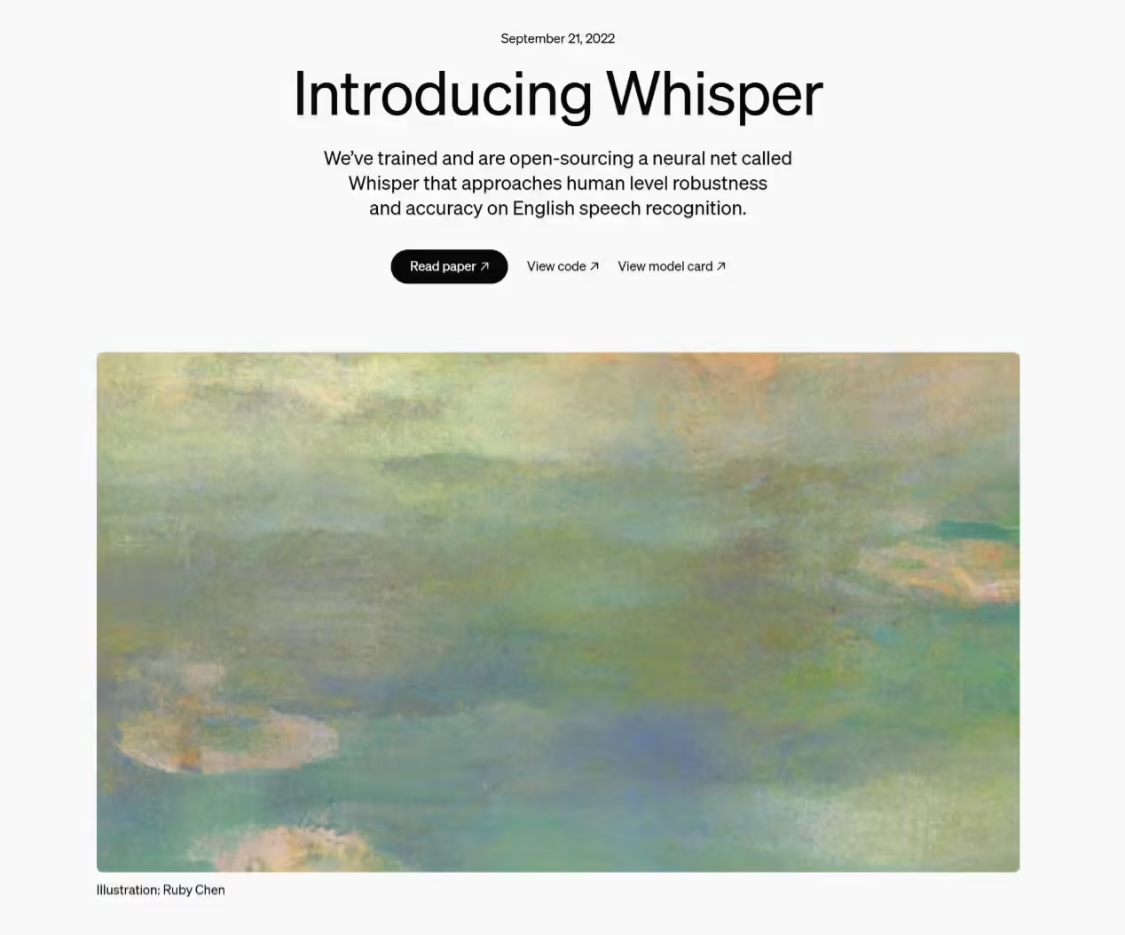On the 27th of local time, according to the Associated Press, more than a dozen software engineers, developers and academic researchers claimed that theOpenAI ofspeech transcription tool Whisper There is a major flaw: sometimes it is generated out of thin airLarge paragraphs or even whole sentences of falsehoods.

These experts noted that these generated texts (note: commonly referred to in the industry as "AI hallucinations") could involveRacial remarks, violent language, even fabricated medical advice.
Experts found this issue to be particularly worrisome because Whisper is already being used in a wide range of industries around the world, including for translating and transcribing interviews, generating common consumer tech text, and creating video subtitles.
Even more risky is the fact that while OpenAI AlertedThe tool should not be used in "high-risk areas", but some health-care organizationsStill in a hurry to adoptWhisper-based tool to document physician-patient consultations.
According to the report, researchers and engineers often encounter Whisper's "hallucinations" in their work, and the full scale of the problem is unclear. For example, a researcher at the University of Michigan studying public meetings found that before attempting to improve the model, he examined theTen audio transcriptionsMiddle.Eight contain fiction.
A machine learning engineer revealed that in the more than 100 hours of Whisper transcripts he initially analyzed, he found thatabout halfOne developer further noted that of the 26,000 transcripts he had generated with Whisper, the content was "hallucinatory". One developer further noted that of the 26,000 transcripts he generated using WhisperNearly everyAll with fictional content.
Even brief audio samples with good sound quality are not immune to these problems. Recent research by computer scientists has shown that they review the 13,000+ segmentsIn the clear audio clip, theThere are 187 paragraphsThe phenomenon of "hallucinations".
The researchers believe that this trend means that tens of thousands of incorrect transcriptions will likely occur in millions of recordings.
A spokesperson for OpenAI said the company continues to research ways to reduce hallucinations and thanked the researchers for their findings and will incorporate feedback in model updates.